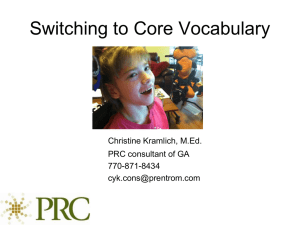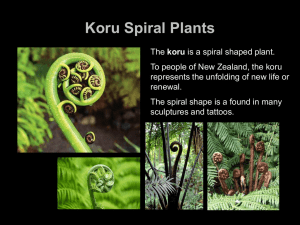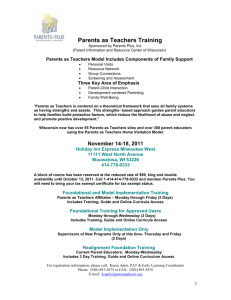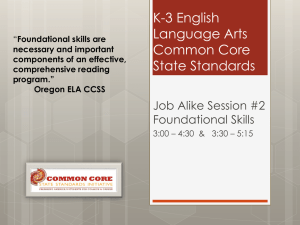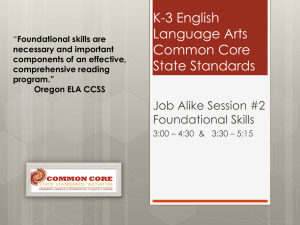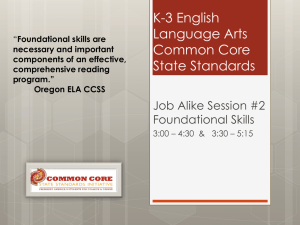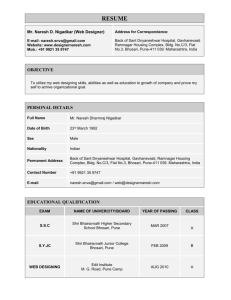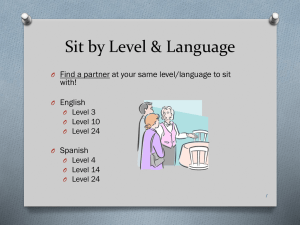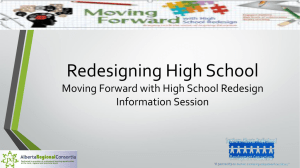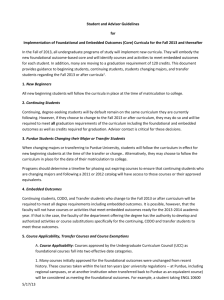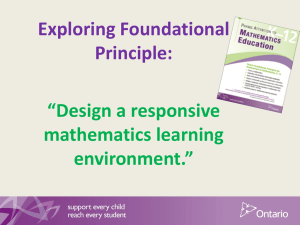Koru Foundational Learning
advertisement
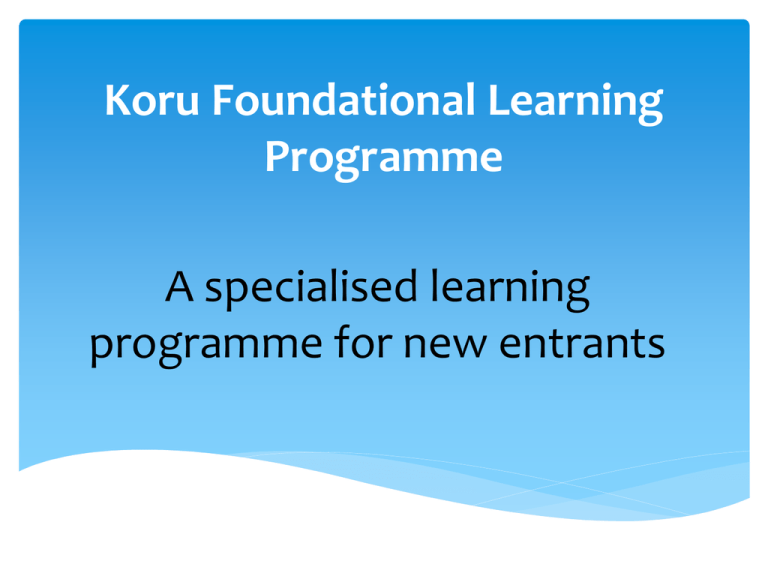
Koru Foundational Learning Programme A specialised learning programme for new entrants Purpose To provide a specialised transition to school programme that embeds the foundational learning necessary for future success; our transition programme enables us to deliver the highest quality new entrant education we possibly can – we are absolutely committed to ensuring that all students experience the best possible start at school – regardless of whether they start in term 1 or term 4. To personalise learning and meet the educational and social needs of all students. To ensure a consistent and equitable programme for all new entrants at school. Building on from Kindy to Koru The Kindy to Koru programme was put in place to ensure a smooth transition to school. Our transition to school programme has been developed through observation of students, parental concerns and research of best practices in early childhood education. The success of Kindy to Koru has enabled the implementation of ‘phase two’ – the foundational learning programme. This programme is also based on research, observation of students and analyses of data over the previous three years. Due to the increasing number of five year olds entering Beachlands School – we are absolutely committed to ensuring that every single student who enters Beachlands receives the best possible start to school – regardless of when they start. Research: Key features of successful transition to school Links between ECE and School Effective communication between home and school. Fostering children’s relationships and friendships and creating an environment rich in opportunities for children to build relationships and make friends. On-going teacher professional development – recognising the specialised nature of this area. Effective assessment practices that recognise the skills and knowledge that students bring to school and what their next steps are. The Structure Kindy to Koru Programme Koru Foundational Learning Room 1 Koru Year 1 – Rooms 2, 3 All children who start Beachlands School will start school in room 1 with an experienced Beachlands School new entrant teacher to learn the foundational learning skills. After approximately 10 weeks (depending on individual student needs), children will then be supported to transition to a new classroom. The new teacher will have spent several weeks in room 1 building relationships with children and getting to know parents to ensure the transition is as smooth as possible. Benefits Consistent first learning experiences for all new entrants throughout the year. Early identification of learning needs. Accelerated learning for more able students: opportunity to transition to year 1 class as soon as foundational benchmarks are met. Opportunities to consolidate and build further foundational learning skills for students who require it. Emotional safety and increased self-esteem when transitioning to year 1 or year 2. The Foundational Learning Skills Becoming a Beachlands Learner – Contributor Friendship: How to make friends and care about others. Encouragement: Of ourselves and others. Respect: Ourselves and others, our school, and our community. Nurture: Ourselves, others and our environment. Life Long Learner: Preparing for learning: eye-tracking, gross and fine motor skills, memory spaces and balance. Literacy – Foundational literacy skills (alphabet sound and names, letter formation and visuals/action, word bank, oral competency, listening/speaking skills) – we are all readers and writers – what we say we can write and what we write we can read. Mathematics: Exploring and understanding numbers colours, shapes and patterns in our world. Thinking about how we learn and being proud of our progress. Communicator Learning to listen to and follow an instruction Able to make friends Speak clearly and with correct pronunciation. Convey thoughts and ideas clearly. Share ideas with the teacher, peers and within a group. Listen respectfully when others are speaking Look at the person speaking Sit still and listen to a story. Leader Taking turns – talking, playing games and with equipment. Raising hand and waiting before speaking Being aware of own personal space and that of others. Willing and able to work within a variety of people.
